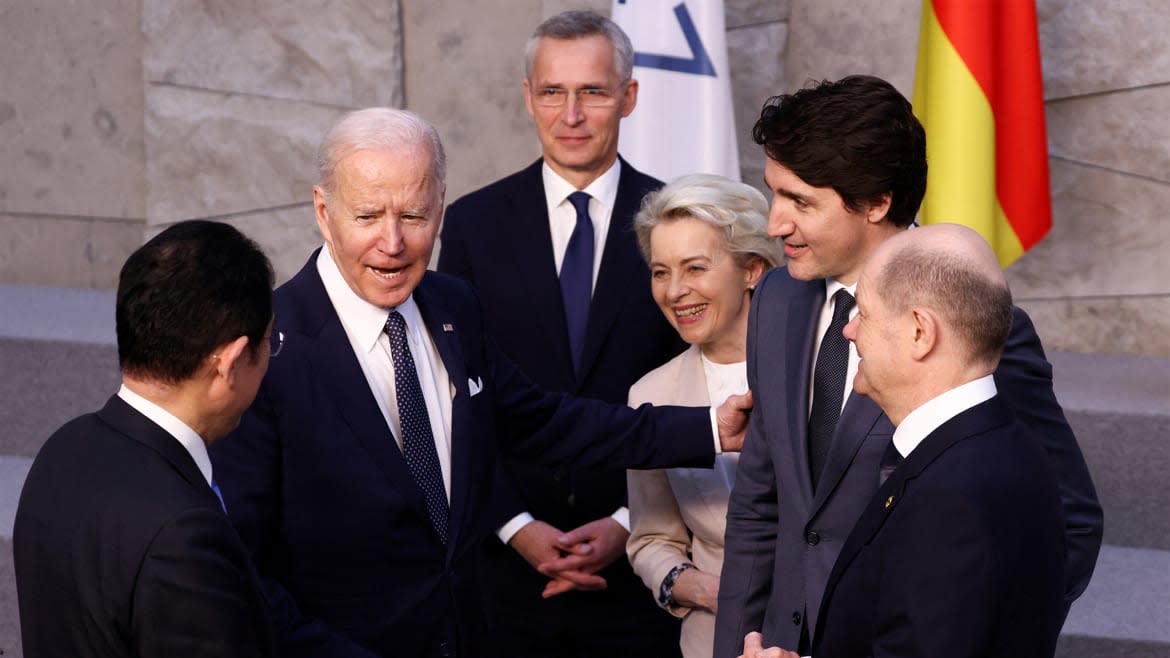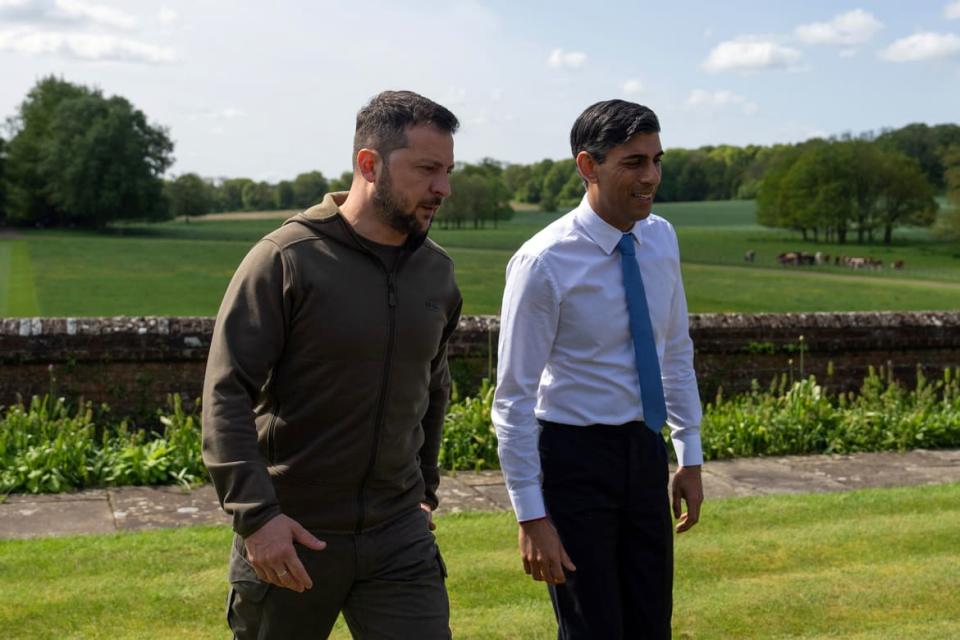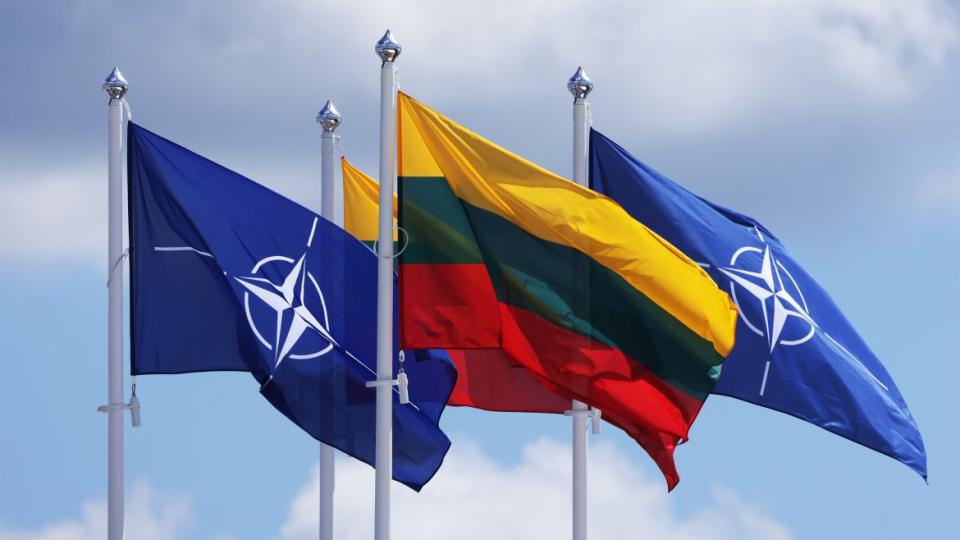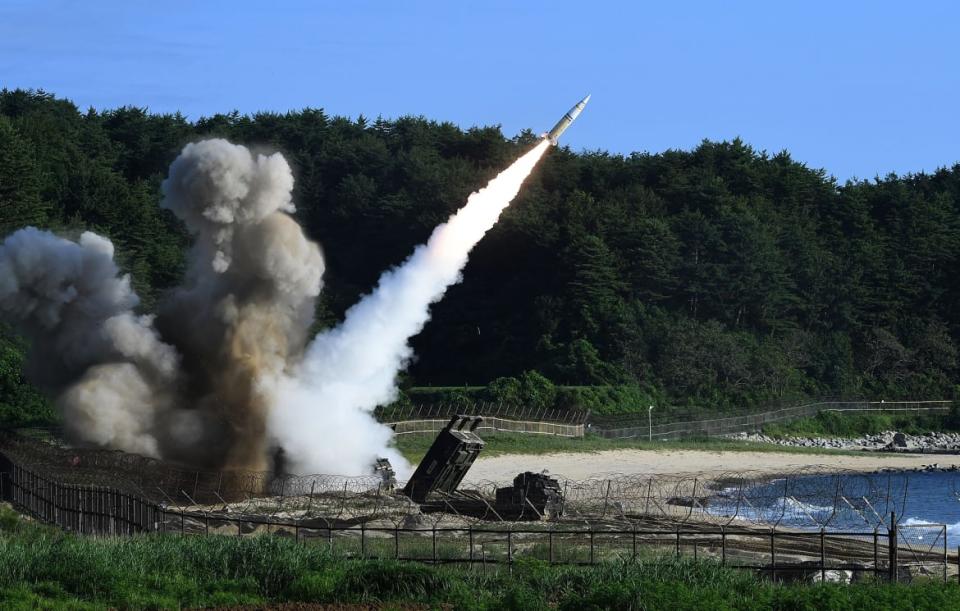Here’s Why Americans Should Care About the NATO Summit

When most Americans see the “Vilnius, Lithuania” dateline on stories about the upcoming NATO summit they will likely scroll past the story or turn the page. The location will sound so distant to them; it is a place they could never find on a map.
In fact, it is one that will sound to many like it is not even from this century, one of those remote, tongue-twister spots from some dusty history book that never seemed too relevant to the people of the world’s richest and most powerful nation.
Further, what could be less relevant to the lives of Main Street America than a NATO summit? Diplomatic talks about budgets and issues that by design seemed so far away?
How Did We Get Putin So Wrong?
Of course, if you were living in Ukraine, you might have a different perspective. You might take it more seriously if you realized the outcome of that summit might determine whether your family lived or died, your home was destroyed, your children kidnapped and shipped to some remote location in Russia (perhaps never to be seen again), or whether your village, your city, or even your country might exist in the future.
You might follow it more attentively if you lived in any state bordered by Russia, a country with a track record of brutally attacking its neighbors, ignoring international law, committing serial war crimes—and getting away with it again and again because people in distant places like the U.S. just didn’t think Russian abuses were close enough to home to their homes to take seriously.

Britain's Prime Minister, Rishi Sunak and Ukraine's President, Volodymyr Zelenskyy, walk in the garden at Chequers on May 15, 2023 in Aylesbury, England.
That is what happened, you’ll recall, when Vladimir Putin ordered his troops to seize part of Georgia in 2008. It is also what happened in 2014 when he launched what is now nearly a decade-long assault on Ukraine.
The American response, the most important response in the NATO alliance, was to shift a few military assets around on paper, to complain in a speech or two, and then to try to get on with dealing with Russia, business as usual. And the response of other big European nations, the “NATO allies,” was to try to move past Russia’s offenses and get back to the business of buying Russian oil and gas and selling them German cars, French wines, and Italian industrial machinery.
Yes, the response was different following Russia’s full-scale invasion of Ukraine in February 2022. But that was a long time ago for many residents of the countries that don’t border Russia.
Russia Mutiny Is More Proof the World Needs to Get Rid of Nuclear Weapons
Are they losing interest? Will they continue to treat the Russian threat with the urgency it demanded? This summit would tell us much about that.
For the people of Ukraine and for the people who recognized that the threat posed by Moscow was a threat to all of Europe—even if it was first and foremost a threat to countries that bordered Russia—next week’s summit is deeply relevant. It could hardly be more personal or pressing.
Despite a lengthy agenda, the summit will, after all, focus on two core questions. First, what will be the future of NATO’s support for and relationship with Ukraine? Next, what will be the future of NATO?
The leaders gathered in Vilnius, a group that will include U.S. President Joe Biden (who will be traveling there after a brief stopover in the United Kingdom), will likely reiterate their support for Ukraine.

The NATO and Lithuanian flags fly over the summit venue on July 9, 2023 in Vilnius, Lithuania.
But what will their actual commitments be? Will there be announcements in and around the meeting of commitments to supply the weapons systems Ukraine needs to defend itself, to drive Russia from its borders? Which borders?
Russia’s Mutiny Shows Ukraine Can Win the War
Will the systems be just enough to help Ukraine eke out small gains until some moment in the future when a deal can be struck that will stop this war—even if it means giving up Ukrainian territory the Russians have stolen since 2014? Or will they be enough to inflict the kind of damage on Russia that will drive it out of Eastern Ukraine and Crimea?
Furthermore, the questions will not just be about whether major long-distance precision guided weapons—like the U.S. MGM-140 Army Tactical Missile System (ATACMs)—or advanced fighter aircraft, or major resupplies of ammunition are promised, but it will be about when they will arrive.
These things matter if you or those you love are fighting to survive, or you fear what a message of waning support might be seen to mean by Vladimir Putin and his cronies in the Kremlin.

A U.S. M270 Multiple Launch Rocket System fires an MGM-140 Army Tactical Missile during a U.S. and South Korea joint missile drill aimed to counter North Korea's intercontinental ballistic missile test on July 5, 2017 in East Coast, South Korea.
So, too, of course, is perhaps the most contentious question likely to be debated in Vilnius: Will Ukraine be accepted into NATO anytime soon?
There have been abstract promises about eventual Ukrainian membership for years. But until Putin invaded they were just that, abstract, off in the might-happen, might-not future. Now, they are not.
Indeed, what most of the countries closest to the Russian threat have come to correctly realize is that Ukraine can never be safe, that no settlement to conclude the current war can be complete, without Ukraine being on a concrete path to NATO admission on a realistic, near-term timetable. Details about how this happens still need to be worked out, but it must be clear to Russia that future aggression anywhere to its West will be seen as an attack on a united Atlantic Alliance—not because we seek a wider war but rather precisely because we desire to prevent one.
A related question is whether and how Ukraine’s admission to the EU can be sped up.
These questions, in turn, cut to one of the most sensitive questions about the future of the alliance that will also be central in Vilnius: Who will lead the alliance?
In the past it was the biggest countries. There is no question that they will continue to be influential—and most influential of all for the foreseeable future will be the United States. But the center of intellectual gravity and energy among the European members of NATO has shifted eastward since the most recent invasion of Ukraine began. Baltic countries (like the hosts of the upcoming meeting) and other states closer to Russia have assumed a leading role in supporting Ukraine, giving disproportionate aid (given the size of their economies) and more outspoken support to Kyiv. By contrast, countries like Germany and France have waffled. Countries like Italy and Spain have been more remote. This summit will help determine how this shift will translate into policies and actions with significant implications for the big questions cited above.
Also significant will be whether the U.S. and other NATO leaders can cut a deal with Turkey to drop its objection to Sweden’s desired admission into NATO, a step that would, like the recent addition of Finland, materially increase NATO’s resources in the north and thereby add to its deterrent profile vis a vis the Russians.
In addition, key decisions will be made about NATO’s strategy going forward—specifically, how it will deploy and support its resources to further ensure the peace of the region. (Once again, it is important to emphasize that history has shown a weaker NATO invites Russian aggression. A stronger NATO is not a threat to Russia but a way to ensure it and Europe avoid future conflict.)
Finally, another aspect of the Vilnius meeting will be the participation of partners from the Indo-Pacific region who seek stronger ties with NATO as a way of encouraging China not to follow Russia’s example. The summit could help determine how closely NATO commits to coordinate with these countries.
How the U.S. and Ukraine Should Take Advantage of a Weakened Putin
Lithuania has recently released its own thoughts on an Indo-Pacific strategy. At the core of these discussions will be a group of countries known as the Indo-Pacific Four (IP4)—Australia, Japan, New Zealand, and the Republic of Korea.
Consequently, while a place like Vilnius may seem far away, and yet another diplomatic summit may seem too dry for the average American to pay any attention, these views are not just out-of-touch—they are dangerous.
This summit will discuss issues on which the future peace of the world will depend, on which the lives of vital American allies and our own well-being may turn.
Confounding all expectations and, it should be added, led by a U.S. president and administration that have played a critical, central role in revitalizing the NATO alliance, this summit matters. And for all the reasons cited above, it will be watched exceedingly closely by audiences that care about the future of peace and democracy worldwide.
Get the Daily Beast's biggest scoops and scandals delivered right to your inbox. Sign up now.
Stay informed and gain unlimited access to the Daily Beast's unmatched reporting. Subscribe now.

